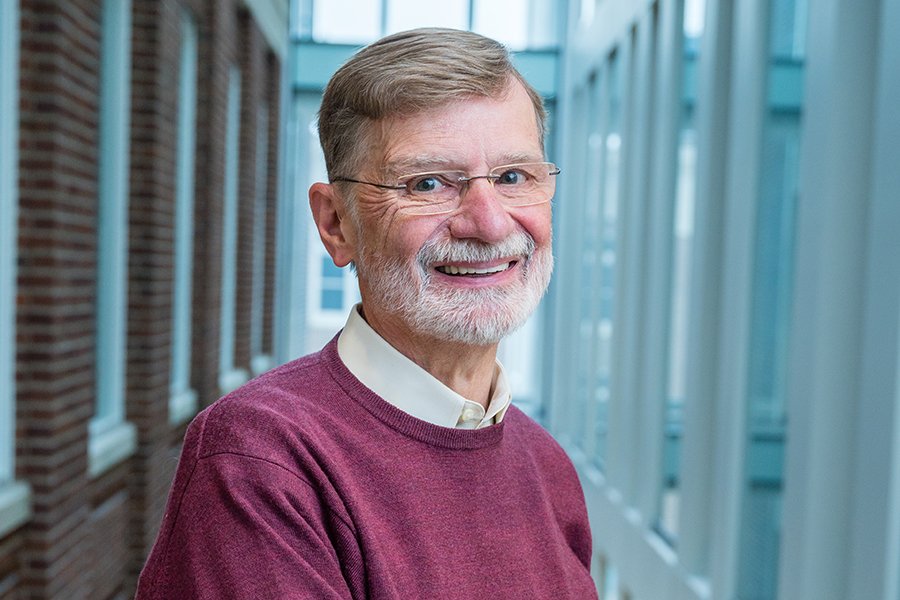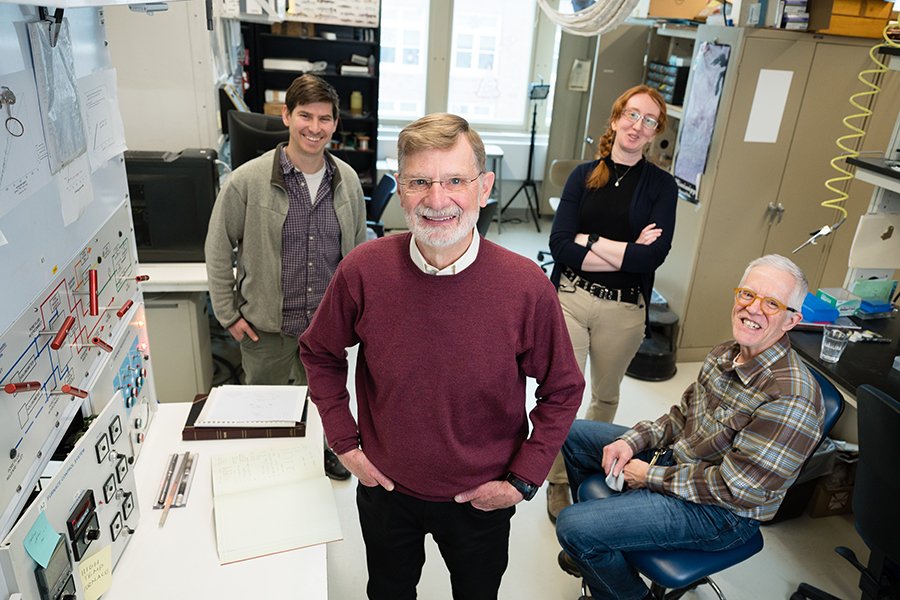Professor Emeritus David Kohlstedt receives Vetlesen Prize, the ‘Nobel Prize of Earth Sciences’

CSE professor will receive $250,000 prize for achievements in understanding the Earth and its history
MINNEAPOLIS / ST. PAUL (01/25/2023)—University of Minnesota Twin Cities Professor Emeritus David Kohlstedt has been awarded the Vetlesen Prize, one of the highest honors in Earth sciences and considered to be the field’s Nobel Prize equivalent. The award honors an individual’s “scientific achievement resulting in a clearer understanding of the Earth, its history, or its relation to the Universe.”
Kohlstedt, a Professor Emeritus in the University of Minnesota N.H. Winchell School of Earth and Environmental Sciences, is internationally renowned for his research on rock deformation processes and the physics and chemistry of minerals. His pioneering experiments have shown how processes at inaccessible depths drive what happens on the planet's surface.
Kohlstedt is invited to give the Vetlesen Lecture and will receive a $250,000 prize and gold medal at Columbia University in April 2023.
He and his research group at the University of Minnesota are widely recognized for demonstrating why plate tectonics take place on Earth. Most geologic processes on the Earth’s surface—the rise of mountain ranges, opening of ocean basins, eruption of volcanoes, shaking of earthquakes—have their origins far below, in the hot, malleable region known as the mantle. But, the mantle is too remote for humans to directly observe.

In recent decades, Kohlstedt and his colleagues have found a way around this by recreating the mantle’s temperature, pressure and chemical conditions in the lab, observing what happens on microscopic levels, and then scaling up the results to real-world size. Their findings underlie much of modern geophysics, structural geology, volcanology, seismology, glaciology, and even the study of other planets.
Kohlstedt’s group was behind several major discoveries within these fields, including showing how igneous rocks deform and proving that the Earth’s mantle contains more water than the oceans.
“This Vetlesen Prize is important because it recognizes the critical contributions of well-designed experimental research to understanding large-scale Earth processes such as mantle convection and plate tectonics,” Kohlstedt said. “The results of our laboratory investigations of high-temperature, high-pressure physical and chemical properties of minerals and rocks provide the foundation of models describing the complex behavior of our planet.”
In 2000, Kohlstedt was elected to the American Academy of Arts and Sciences, and in 2009, he was elected to the National Academy of Sciences, one of the highest honors given to scientists in the United States. That same year he also received the Murchison Medal of the Geological Society of London honoring his research group’s achievements in studying the effect of water on the strength of Earth’s crust and mantle.
He is also a fellow of the American Association for the Advancement of Science, American Geophysical Union (AGU), the Mineralogical Society of American, and the Geological Society of London, and he is one of the principal founding organizers of AGU’s Mineral and Rock Physics section.
Kohlstedt received his bachelor’s degree in physics and mathematics from Valparaiso University in 1965 and earned a Ph.D. in solid-state physics from the University of Illinois at Urbana-Champaign in 1970. He was on the faculty of Cornell University's Department of Materials Science and Engineering before joining the University of Minnesota Twin Cities N.H. Winchell School of Earth and Environmental Sciences (then the Department of Geology and Geophysics) in 1989.
Read more about David Kohlstedt and the Vetlesen Prize.
